
Glitase 15mg Tablet
Manufacturer
Torrent Pharmaceuticals Ltd
Salt Composition
Pioglitazone (15mg)
Key Information
Short Description
Glitase 15mg Tablet is used to treat type 2 diabetes mellitus in adults by helping control blood sugar levels.
Dosage Form
Tablet
Introduction
Glitase 15mg Tablet is used to manage type 2 diabetes mellitus in adults. It can be taken alone or with other medications and may be taken with or without food. Regular intake at the same time each day is recommended for maximum benefit. Stopping the medication without consulting a doctor can lead to elevated blood sugar levels, increasing the risk of complications like kidney damage, blindness, nerve problems, and limb loss. Common side effects include headache, sinusitis, muscle pain, and pharyngitis. It is not suitable for those with type 1 diabetes, diabetic ketoacidosis, or severe kidney or liver disease. Pregnant or breastfeeding women should consult their doctor before use. Regular monitoring of blood sugar levels and liver function is advised.
Directions for Use
Take this medicine in the dose and duration as advised by your doctor. Swallow it as a whole. Do not chew, crush, or break it. Glitase 15mg Tablet may be taken with or without food, but it is better to take it at a fixed time.
How it works
Glitase 15mg Tablet is an anti-diabetic medication. It works by increasing the body's sensitivity to insulin, a natural substance that helps control blood sugar levels.
Quick Tips
Glitase 15mg Tablet helps to control blood sugar level and avoid long-term complications. Take it only as per dose and duration suggested by your doctor. You should continue to exercise regularly, eat a healthy diet, and take your other diabetes medicines along with Glitase 15mg Tablet. Full effects may be visible after several weeks of starting Glitase 15mg Tablet. Keep taking it as prescribed by your doctor. Monitor your blood sugar level regularly while taking this medicine. Notify your doctor if you experience shortness of breath, heart problems, or any abnormal swelling. Your doctor may monitor your liver function. Inform your doctor if you notice symptoms like abdominal pain, yellowing of eyes, and loss of appetite.
Related Medicines
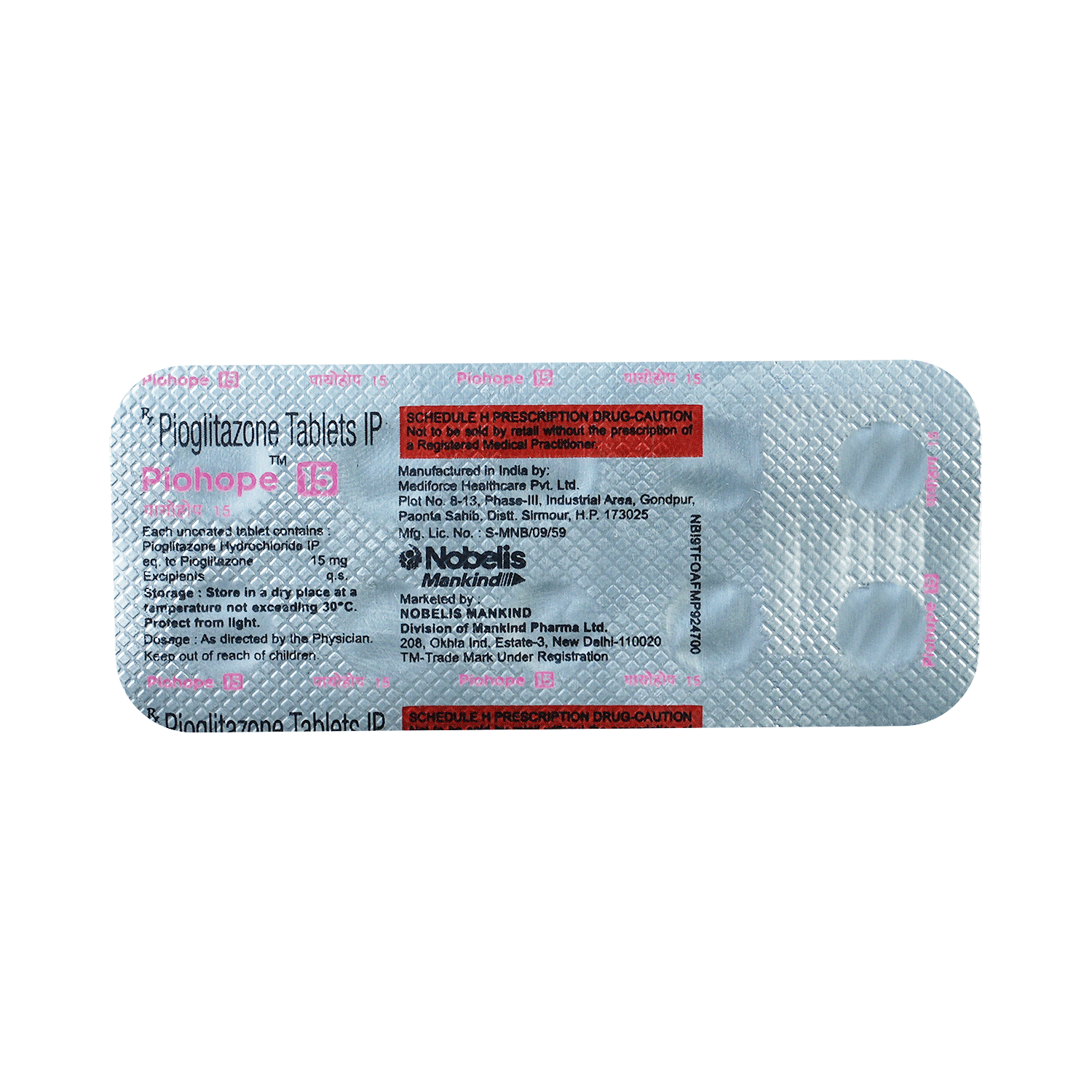
Piohope 15 Tablet
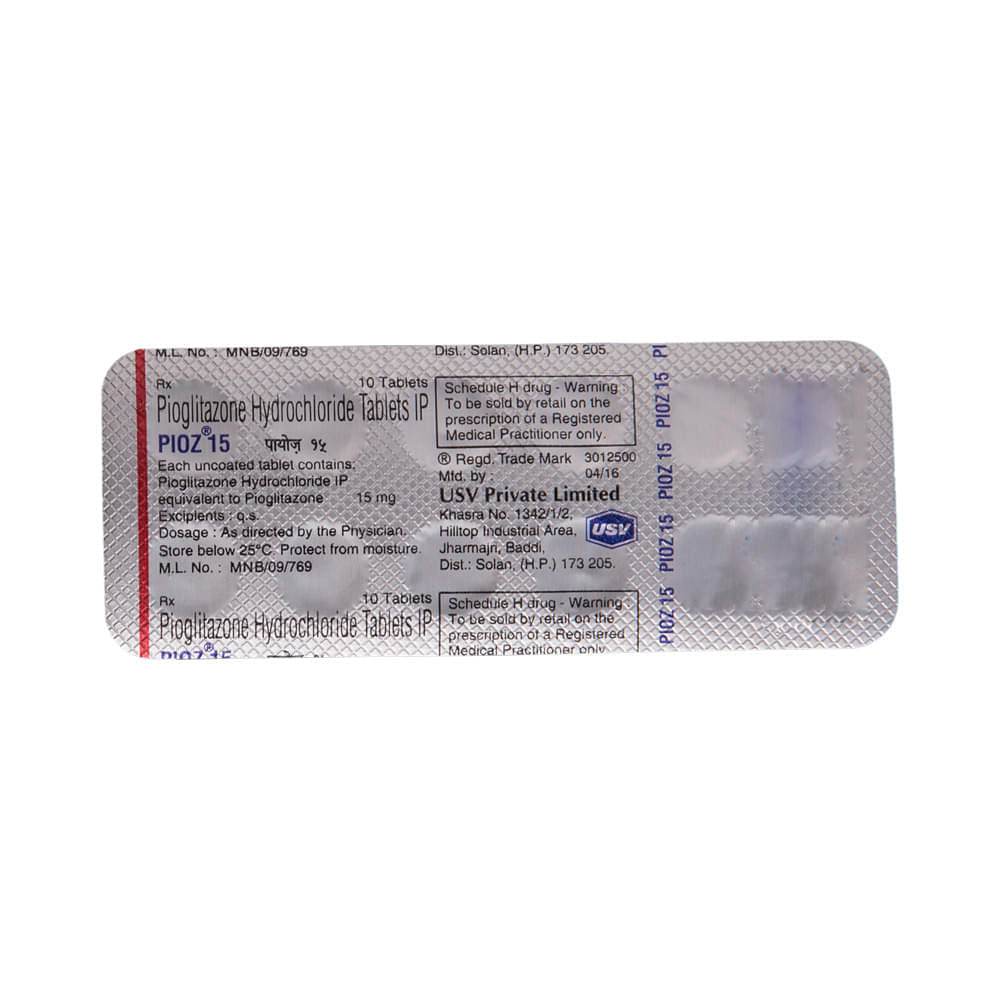
Pioz 15 Tablet
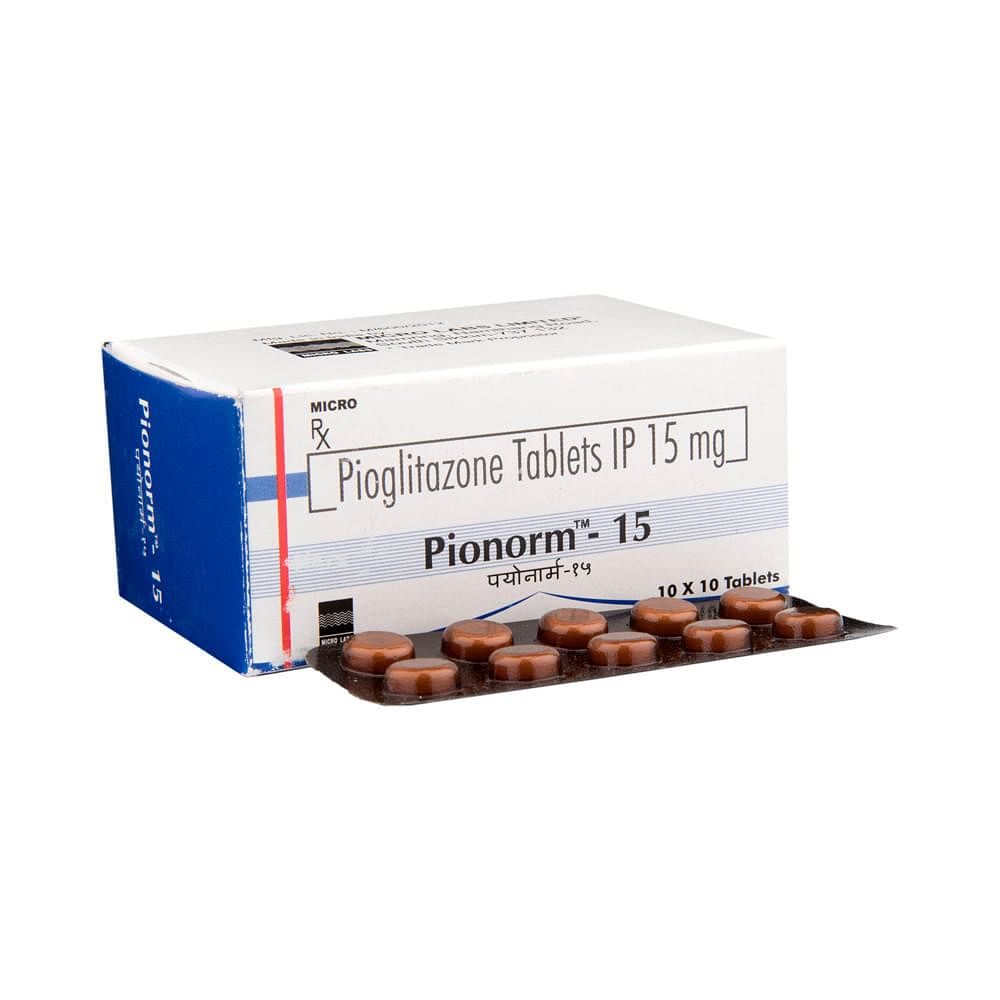
Pionorm-15 Tablet
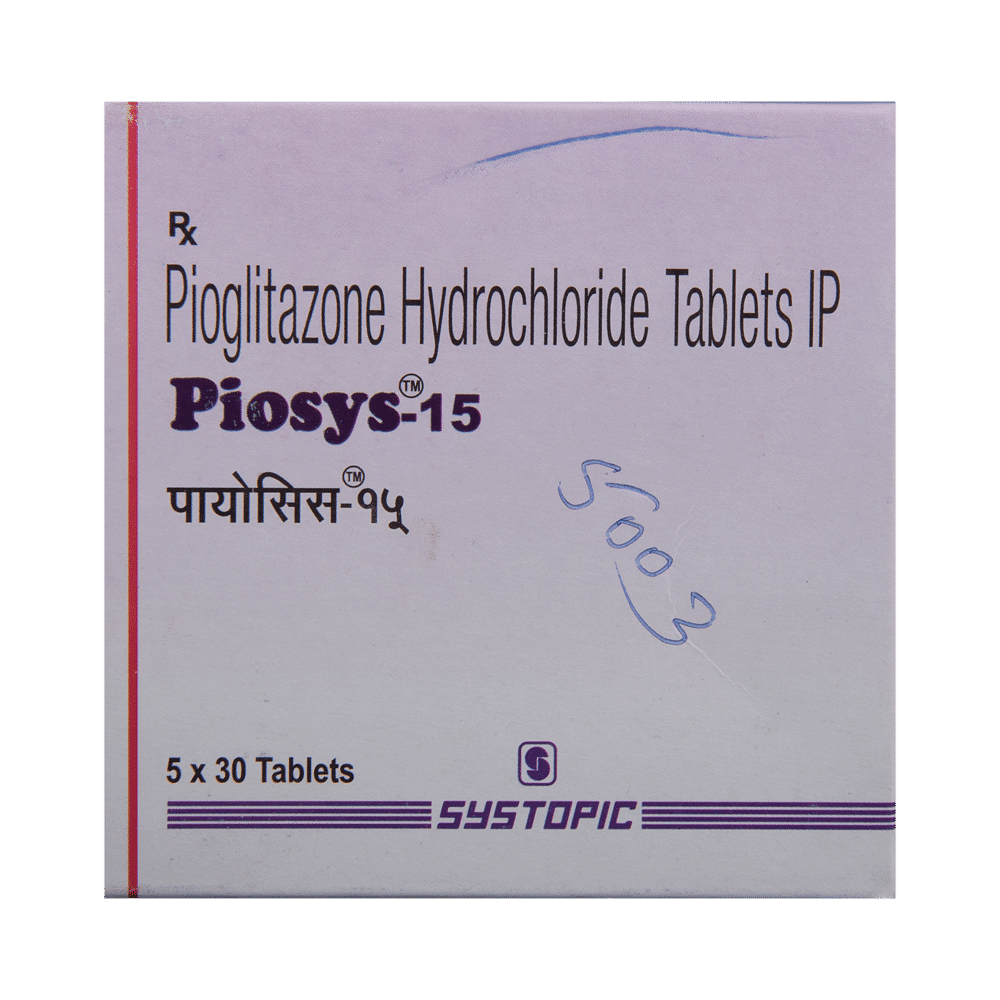
Piosys 15 Tablet
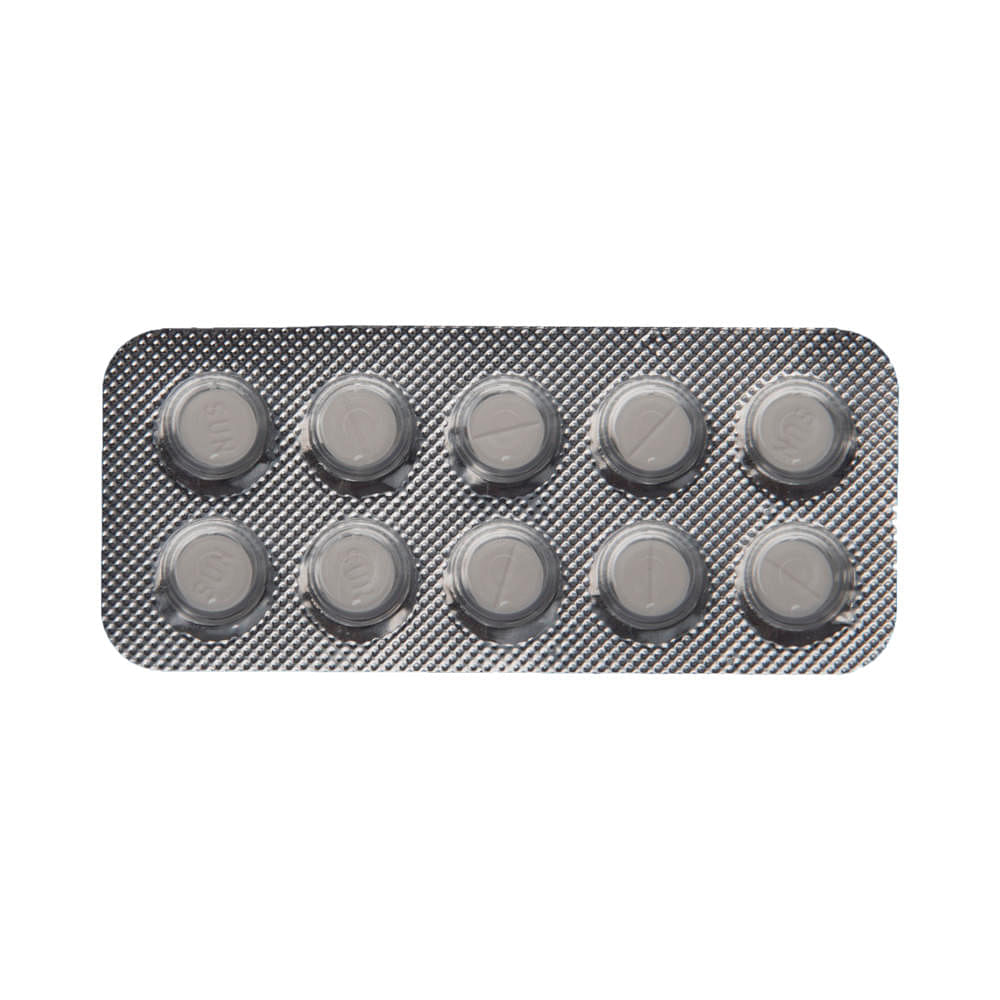
Pioglit 15 Tablet

Piotis 15mg Tablet

Coglit 15mg Tablet

Pio G 15mg Tablet

Glitaz 15mg Tablet

Piozit 15mg Tablet


